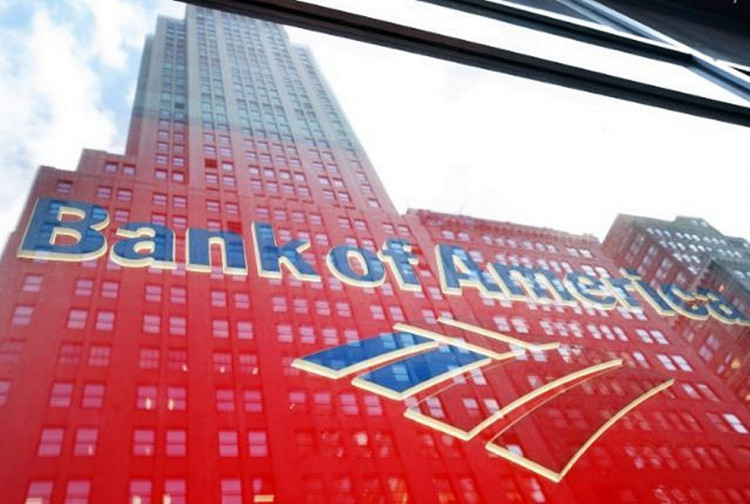Bank of America (BofA) reported record first-quarter profit but still saw its share price take an initial hit on Wall Street after executives confirmed a slowdown in the bank's net interest income (NII) growth.
The bank, which is the second largest in the United States, expects 2019 NII to be half that of 2018. Chief Financial Officer Paul Donofrio said NII grew 6 percent in 2018 but under more favorable conditions. The bank now has to struggle against weak interest rates and a slowing U.S. economy.
"The economy is expected to grow more moderately in 2019 and rate expectations have been lowered, plus we have some seasonable headwinds in Q2," said Donofrio during a conference call with analysts. "Ultimately, we expect NII for the full year of 2019 to be up roughly half the pace of 2018. This perspective assumes today's forward curve and loan and deposit growth consistent with the current economy."
BofA shares fell 2.6% after the first hour of trading but recovered most of its losses after lunch. The stock ended the day at $29.88 compared to its opening of $29.30.
The NII slowdown is especially bothersome because this metric is one of the most important ways banks make money. Bank stocks have struggled since the U.S. Federal Reserve on March 20 decided to hold the line on interest rates, saying there would likely be no further rate hikes this year.
This headwind combined with unmistakable signs of a global economic slowdown has led to falling long-term interest rates, hurting bank profit margins.
Highlights from BofA's Q1 report:
* A 6 percent improvement in profit to $7.3 billion, or 70 cents a share, exceeding analysts' estimates of 66 cents a share.
* Revenue at $23 billion, basically unchanged from Q1 2018 but essentially meeting analysts' estimates.
* Net interest yield rising 9 basis points to 2.51 percent, beating analysts' 2.48 percent estimate.
* Deposits up 5 percent to $1.4 trillion
* Consumer and commercial loans up at least 3 percent
BofA divisions generally performed well. Consumer lending, the bank's biggest division, recorded a 25 percent increase in profit to $3.2 billion. It saw revenue rise 7 percent to $9.6 billion while reducing costs by almost $200 million.
The bank's global banking business posted a 2 percent profit rise to $2 billion. Wealth management profit rose 14 percent to $1 billion.
On the other hand, the bank's global markets division saw profit plunge 26 percent to $1 billion. Revenue fell 13 percent on weak trading results and lower investment banking fees. Equities trading revenue dropped 22 percent while fixed income declined 8 percent.
The bank's other two divisions generated positive results.
"Economic growth and consumer activity in the U.S. continue to be solid, businesses of every size are borrowing and driving the economy, and asset quality are strong," said CEO Brian Moynihan.
The bank's shares have risen more than 20 percent so far this year, besting most of its peers and the KBW Bank Index.





